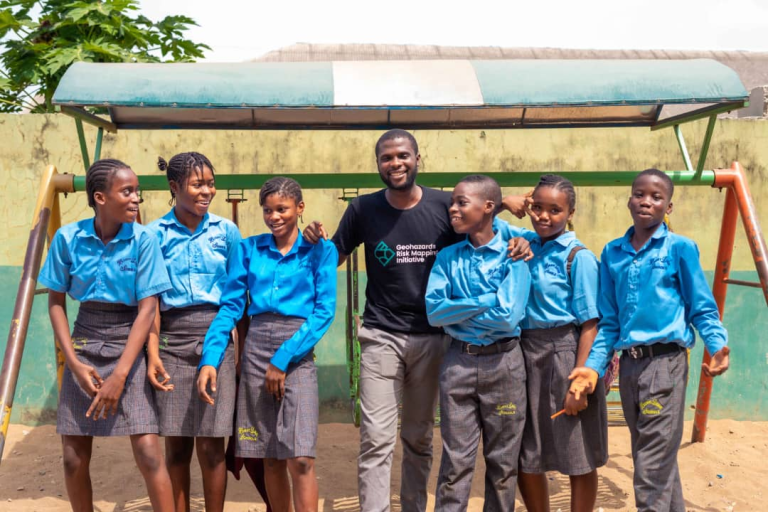As Nigeria faces the devastating effects of climate change-induced flooding, the Geohazards Risk Mapping Initiative (GRMI), a nonprofit organization, has raised alarm over the impact of these disasters on the nation’s education system. A recent pilot survey conducted by GRMI in Lagos and Kogi states highlights the urgent need for proactive government intervention to protect schools, students, and communities from the worsening effects of flooding.
Taiwo Ogunwumi, Founder and Senior Project Lead of GRMI, discussed the findings in an interview, revealing that while most schools in the surveyed states are situated in low-risk zones, severe flooding still forces schools to close temporarily, disrupting academic activities. He pointed out that beyond physical closures, flooding has a significant emotional and mental toll on students, leading to increased anxiety and academic disparities between students in flood-affected and unaffected areas. This disruption further exacerbates educational inequalities.
Ogunwumi emphasized that an estimated 2.5 million children and youths in Nigeria live in flood-prone regions, exposing them to greater risks. To mitigate these challenges, GRMI calls for stronger school infrastructure in flood-prone areas, such as elevated buildings and enhanced drainage systems, to prevent closures and ensure schools remain operational during floods.
In addition to improving physical infrastructure, Ogunwumi highlighted the need for psychosocial support for students in flood-affected areas to help them cope with the emotional distress caused by climate-related disruptions. The organization also advocates for the development of remote learning platforms to ensure continuity of education during flood-induced school closures.
“Flood-related school closures highlight the need for alternative learning platforms. To ensure continuity of education during these closures, we advocate for the development of remote learning systems,” Ogunwumi stated. He also called for empowering youth and children in flood risk management by involving them in mapping flood-prone areas and educating them on disaster preparedness.
Kayode Adeniyi, GRMI’s Head of Research, echoed these concerns, emphasizing the severe risks flooding poses to Nigeria’s education sector. He explained that flooding disrupts academic activities, damages critical school infrastructure, and creates unsafe conditions for both students and staff. Adeniyi noted that marginalized communities, many of which reside in flood-prone areas, are particularly affected, and stressed that the situation undermines the achievements of the United Nations Sustainable Development Goal 4, which advocates for inclusive and equitable quality education.
Adeniyi revealed that, according to the National Bureau of Statistics (NBS), students in flood-affected areas missed an average of 53 school days in 2022 alone due to flooding. However, the true scale of flooding’s impact on education remains largely untracked, as there is no comprehensive system in place to monitor the frequency, severity, or educational consequences of floods in Nigeria.
The GRMI’s survey comes at a critical time as Nigeria is ranked second globally in UNICEF’s Children’s Climate Risk Index (CCRI) for countries most at risk from climate change. The organization calls on all levels of government to take decisive action to safeguard education from the adverse effects of flooding and ensure that students’ right to quality education is not jeopardized by climate-related disasters.




